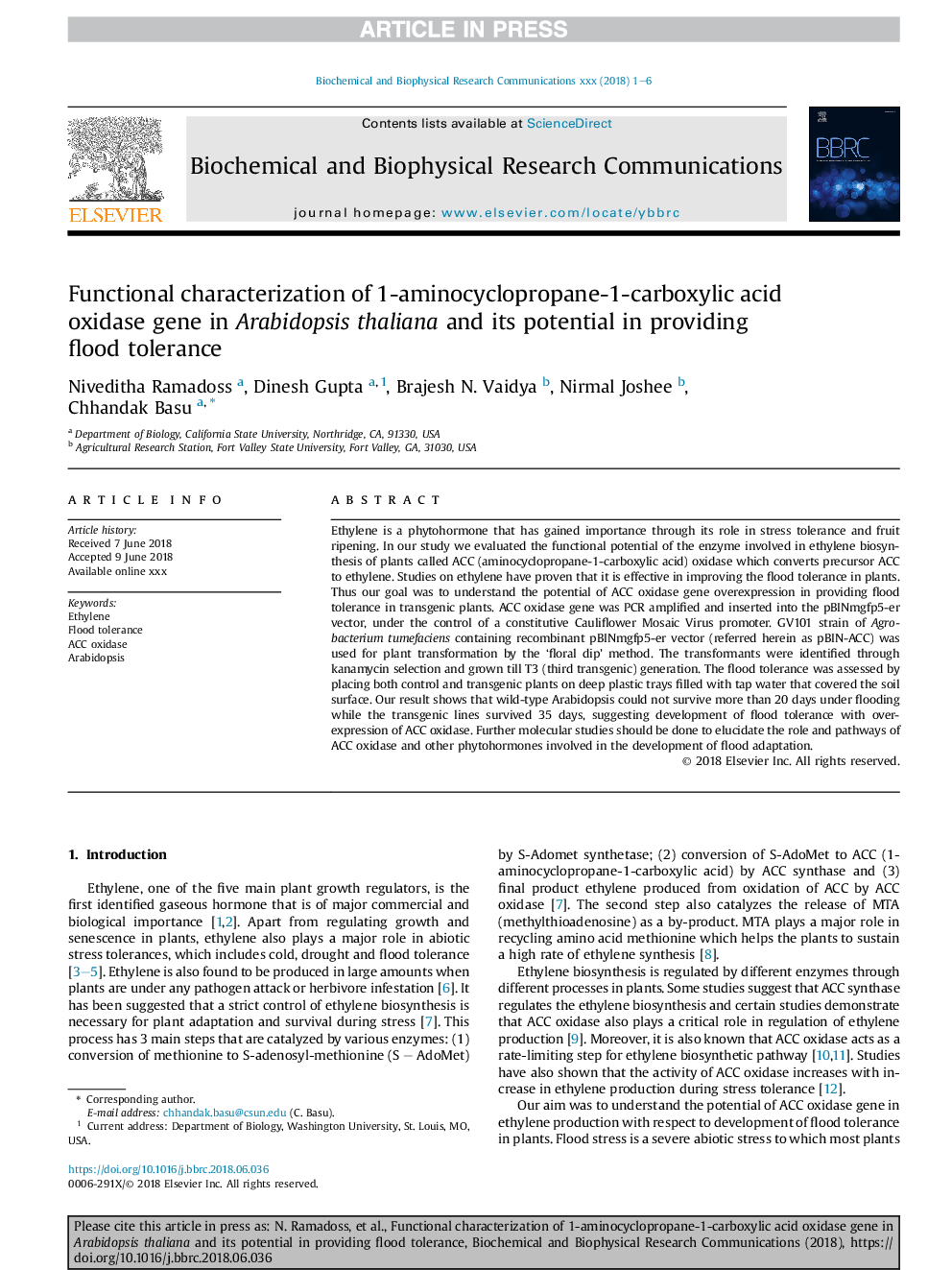| Article ID | Journal | Published Year | Pages | File Type |
|---|---|---|---|---|
| 8292409 | Biochemical and Biophysical Research Communications | 2018 | 6 Pages |
Abstract
Ethylene is a phytohormone that has gained importance through its role in stress tolerance and fruit ripening. In our study we evaluated the functional potential of the enzyme involved in ethylene biosynthesis of plants called ACC (aminocyclopropane-1-carboxylic acid) oxidase which converts precursor ACC to ethylene. Studies on ethylene have proven that it is effective in improving the flood tolerance in plants. Thus our goal was to understand the potential of ACC oxidase gene overexpression in providing flood tolerance in transgenic plants. ACC oxidase gene was PCR amplified and inserted into the pBINmgfp5-er vector, under the control of a constitutive Cauliflower Mosaic Virus promoter. GV101 strain of Agrobacterium tumefaciens containing recombinant pBINmgfp5-er vector (referred herein as pBIN-ACC) was used for plant transformation by the 'floral dip' method. The transformants were identified through kanamycin selection and grown till T3 (third transgenic) generation. The flood tolerance was assessed by placing both control and transgenic plants on deep plastic trays filled with tap water that covered the soil surface. Our result shows that wild-type Arabidopsis could not survive more than 20 days under flooding while the transgenic lines survived 35 days, suggesting development of flood tolerance with overexpression of ACC oxidase. Further molecular studies should be done to elucidate the role and pathways of ACC oxidase and other phytohormones involved in the development of flood adaptation.
Related Topics
Life Sciences
Biochemistry, Genetics and Molecular Biology
Biochemistry
Authors
Niveditha Ramadoss, Dinesh Gupta, Brajesh N. Vaidya, Nirmal Joshee, Chhandak Basu,
